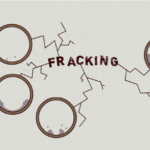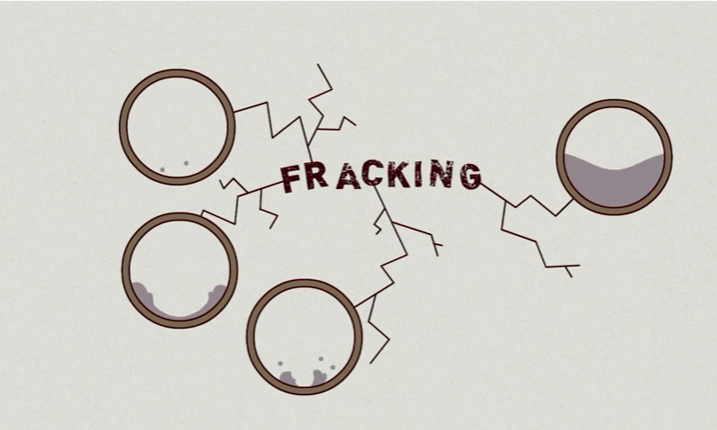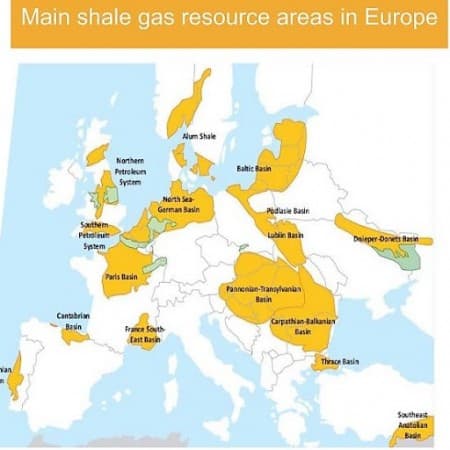Europe has more gas than the US in its guts, but we bet it won’t extract it?


The skyrocketing gas prices in Europe, and above all the prospects of a winter in which there could be severe scarcity, should push to exploit all the resources available. The European Union – which no longer includes the UK – plans to replace two-thirds of Russian gas imports by the end of the year, although analysts warn that, even at best, the target will not be met. .
In 2021, the EU imported around 155 billion cubic meters (bcm) of natural gas from Russia. Unfortunately, gas replacement proposals by the end of 2022 – which include LNG (liquefied natural gas) diversification, renewables, heating efficiency, pipeline diversification, biomethane, solar roofs and pumps of heat – amount to only about 102 billion cubic meters per year, according to data from the European Commission's REPowerEU. 53 billion cubic meters are still missing!
Where to find them? Simple, in theory, by extracting them by fracking methods from European shale rocks. According to technicians' estimates, Europe has more recoverable shale gas than the United States. However, the only significant fracking activity is that of Ukraine, which managed to break away from Russian gas years ago. Here is an explanatory map

Fracking in Europe has long been a controversial issue due to population density, largely. We are not in North America. Proponents of this extraction technique argue that shale gas potential in Europe is needed now more than ever, even though Germany, France, the Netherlands, Scotland and Bulgaria have already banned fracturing. Now the debate has been revived by recent initiatives in the UK.
New British Prime Minister Liz Truss has announced the lifting of the 2019 moratorium on shale gas fracturing, in an effort to boost national energy resources and help families and businesses struggling to pay their energy bills.
The lifting of the fracking ban comes only three years after the government stopped its support for fracking after the authority overseeing the oil and gas industry ruled that "it is not possible, with current technology, to predict accurately the probability of shock associated with fracturing ”.
Britain has only two shale gas wells in Lancashire, operated by Cuadrilla Resources. Francis Egan, chief executive of Cuadrilla, welcomed the lifting of the ban, stating that: “This is a completely reasonable decision and recognizes that maximizing the UK's national energy supply is key if we are to overcome the energy crisis in course and reduce the risk of it recurring in the future. Without the strong measures established today, the UK was set to import over two-thirds of its gas by the end of the decade, exposing UK citizens and businesses to further risks of supply shortages and rising prices ”.
In the rest of Europe, however, at least in the past, it went differently: in 2012, demonstrators in Zurawlow, a city in eastern Poland, successfully blocked a fracking site, while Greenpeace activists occupied a gas plant shale in Denmark.
Strong public opposition, coupled with fiscal concerns, regulatory delays, and poor production from a handful of test wells, has alienated investors. Exxon Mobil, Chevron and TotalEnergies were forced to abandon projects in Poland after explorations proved disappointing. Gas flows in Denmark were also scarce and Total abandoned shale gas drilling.
The big problem with fracking in Europe is that some of the conditions that fueled the US shale boom don't exist in Europe. In most countries, the state, not private landowners, owns the mineral rights to the oil and gas in the land. Unlike the United States, where landowners' share can reach up to one eighth of production revenues. This means, in effect, that fracking does not produce large financial rewards for European landowners, who therefore do not give them, superficially, for exploitation.
Yet the gas that Europe imports from the US is extracted with this technique. Less hypocrisy and different legislation, affecting local administrations and owners, would be needed to increase exploitation also in the EU and be able to overcome the current energy crisis.

Thanks to our Telegram channel you can stay updated on the publication of new articles of Economic Scenarios.
The article Europe has more gas than the US in its guts, but we bet it won't extract it? comes from ScenariEconomici.it .
This is a machine translation of a post published on Scenari Economici at the URL https://scenarieconomici.it/leuropa-ha-piu-gas-degli-usa-nei-suoi-visceri-ma-scommettiamo-che-non-lo-estrarra/ on Thu, 15 Sep 2022 13:07:10 +0000.
